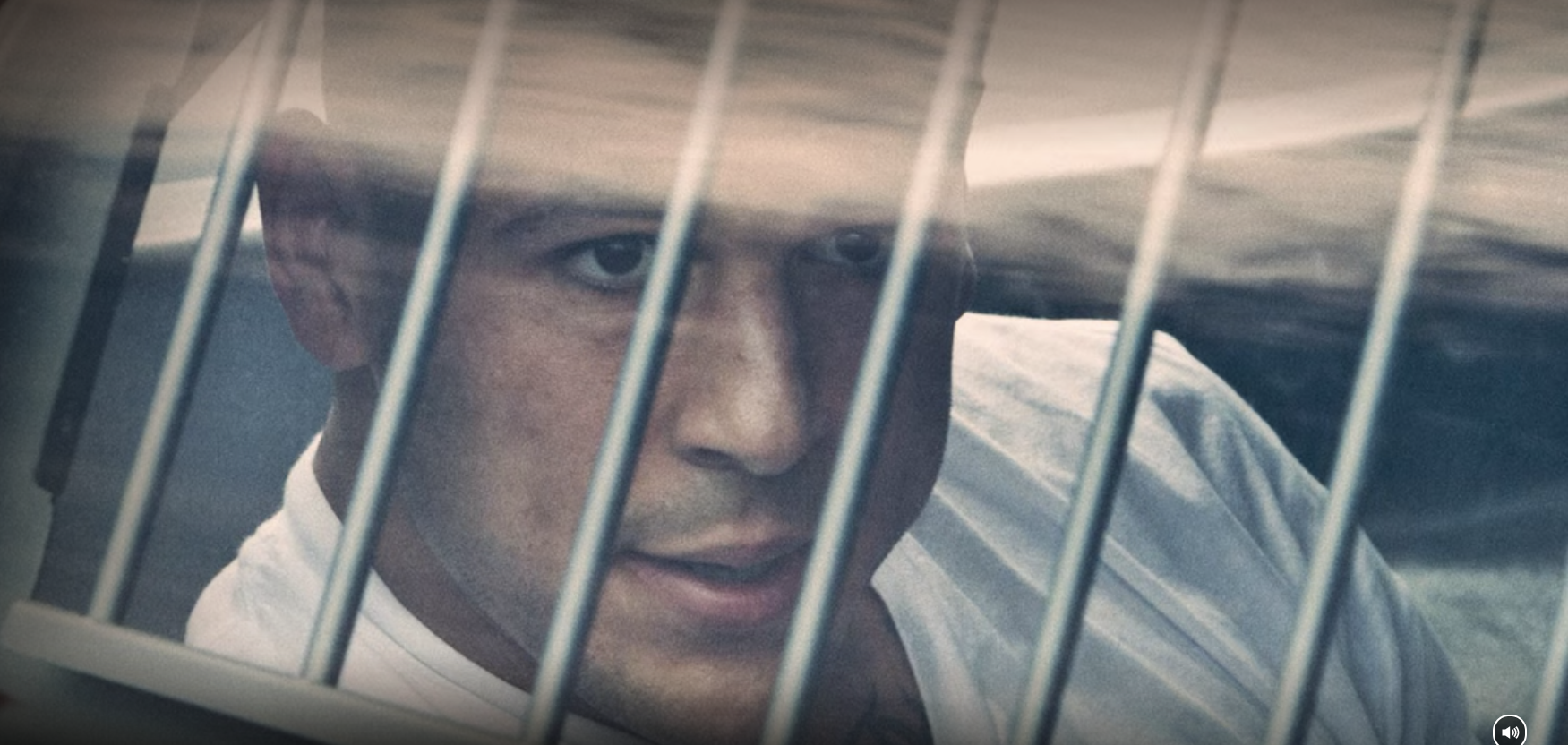
Vanessa Alvarez
Netflix released its latest documentary “Killer Inside: The Mind of Aaron Hernandez” detailing the rise and fall of NFL star and convicted murderer Aaron Hernandez.
The documentary captivating fans everywhere takes a different approach to the stereotypical narrative of a documentary by honing in on the psychological details rather than the simple story. In a span of three episodes, Hernandez’s life and death is explained in chronological order beginning with his early life in Bristol, Connecticut to his historic career at the University of Florida and ends at his death in a Connecticut correctional facility.
Hernandez began playing for the University of Florida at a mere seventeen years old and was later drafted to play for the NFL at just 20 years old. During his time at UF, Hernandez played the position of tight end alongside Heisman trophy recipient and quarterback, Tim Tebow. He contributed to two of UF’s BCS National Championships.
Phone calls between Hernandez and family members while in jail, personal interviews with friends and family, as well as live footage from Hernandez’s outings piece together his death. The “why” of Hernandez’s crimes are answered from many viewpoints and components of his life are called into question more specifically regarding his drug use, sexuality and mental health.
“The only thing I didn’t like about the documentary is that they tried to pin a lot of it on his oppressiveness of his sexuality,” said nursing major Annie Gustafson. “They’re outing someone who never publicly outed themselves which is disrespectful to that person. It’s not right of the documentary to exploit that because that’s someone’s soul. Even though he is a terrible person, he didn’t deserve that.”
Aside from being a true-crime series, the documentary brings a heavy awareness to degenerative brain disease known as chronic traumatic encephalopathy. The disease heavily impacts individuals, mostly men at this point, who participate in high impact sports that cause heavy and repeated brain trauma.
“The fact that he was only in his early 20’s with brain damage equivalent to someone who had been playing football for about 30 years is absolutely insane,” Gustafson said. “It doesn’t acquit him of his crimes, he chose the path that made him a murderer.”
According to the Concussion Foundation, symptoms of CTE include depression, aggression and suicidal thoughts, all of which Hernandez expressed, and became evident in his phone calls and criminal history.
“Aaron Hernandez’s story is just one tragic dialogue that is being used to promote the life-altering effects of CTE,” psychology major Olivia Kerper said. “Hopefully this documentary will shed a light on the importance of safety precautions in high-impact sports.”
This documentary appears to pin the NFL and collegiate football legend as a victim through tales of abuse and oppression while ensuring audiences recall his wrongdoings. Similar to other documentaries, “Killer Inside: The Mind of Aaron Hernandez” captures Hernandez’s life through individuals close to the subject and includes previous tapes from court cases and interviews. Rather than solely centering the documentary on the suspect, however, a bit of light is shed on the victim, Odin Lloyd.
Similar to Hernandez, Lloyd shared a passion for football which was seen through his career as a semi-pro football player. Mike Massey, a friend and former teammate of Lloyd, spoke on his behalf which allowed audiences to develop a more personal connection with who Lloyd was and the impact of his death.
Kevin Armstrong, a journalist who also starred in the series, and Dan DiStefano are the executive producers behind the show, and it is safe to say they developed quite the captivating piece.
The documentary attracts an array of different individuals including Hernandez’s fans, true-crime junkies and individuals infatuated with the inner workings of the brain. The series tackles a handful of topics including suicide and sexuality which may be triggering for some audiences, however, it is quite the informative work.
Since its release a handful of individuals have spoken out including Hernandez’s fiancee Shayanna Jenkins and his attorney, Jose Baez. Jenkins shared a message on Instagram thanking her followers for their unconditional support and positive energy. Her post revealed that she read every message and email through various platforms, specifically email and Instagram.
Baez, however, shared a blunt message on Instagram which was directed towards the creators of the documentary. In his post, Baez claimed the directors of the documentary lied to him simply with the motive to make a profit.
“I knew him, they did not and while he was far from perfect, they are not even close to the truth,” Baez said in his post.
Despite Baez’s claim, the documentary continues to captivate true-crime fans as well as Hernandez’s fans and psychology lovers. The documentary takes a similar approach as Netflix’s “Making a Murderer,” which takes a similar approach to unveiling the lives of convicted killers. The two documentaries interview individuals including investigators, journalists and family members to increase credibility of the documentary.
“Killer Inside: The Mind of Aaron Hernandez” is currently available for streaming only on Netflix with a rating of TV-MA due to the discussion of sensitive topics including suicide, mental health and violence.







